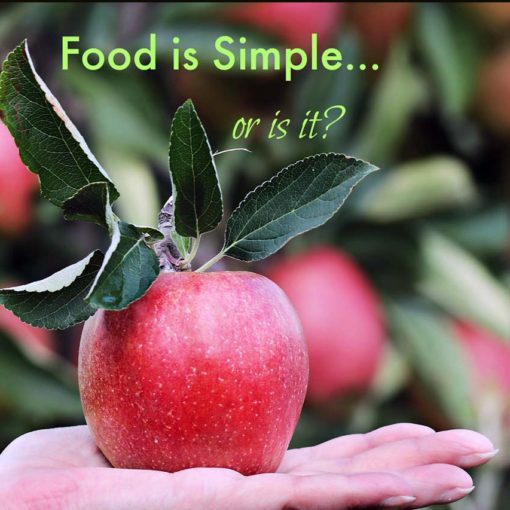orthorexia – an obsession with eating foods that one considers healthy or proper; fixation on righteous eating
She came to me because she wanted validation that everything she was doing was right. During her Health History Consult, she quickly outlined all the good foods she was eating and then gave me a laundry list of foods that she had gotten rid of because they were bad. I asked her about her stress level and she said: “It’s through the roof with juggling baby twins, pressure at work and struggling with time management because my husband is never home. Not to mention my anxiety – it’s gotten worse this past year. I feel like all I do all day is think about food, plan and shop for food, prep and cook food…and I’m having a hard time making the right decisions every single day when my mom and dad are feeding my kids crap behind my back. I can’t even stand to go out with my girlfriends anymore because of the places they pick to eat.”
These are some of the warning sign of orthorexia.
The word comes from the Greek word orexia which means appetite.
All too often we attach our personal rightness (and perhaps superiority) to our food choices and that is a slippery path to orthorexia. I call this the halo effect. I’ve witnessed it many times – the belief that there is a right way and a wrong way to eat. Our overly zealous diet culture feeds this feeling. This superior way of eating easily inflates the ego and ignites judgment (of self and others) and creates rifts in family and friendships. On the other hand, this compulsion to eat properly can eventually trigger our natural rebel inside, it sabotages our intentions to be healthy, and we tailspin to feeling like a failure – perhaps reversing any progress we’ve made.
Here at Nourish, we don’t believe food is good or bad. We believe food is how it makes you look, feel and perform. It is a different way of looking at food choices and our habits. And most importantly, this new way of thinking is empowering. Both Debbie and I showed orthorexic signs when we first began our health journeys and this is why we’ve developed this philosophy.
Awareness of orthorexia is on the rise.
I was surprised to learn that it was only coined in the late 1990s. If you recognize yourself in this story at all, don’t be alarmed. Many of us are hyper aware of our food choices and how it affects our potential to thrive in today’s world. In 2007 when Debbie and I met at school, I remember going through a kind of roller coaster myself. I would watch someone pick a food that wasn’t worthy and think – how could they eat that!? I’m embarrassed now by that behavior. At the time, I judged that they were making a poor decision. Now I know it might have been the right decision for them OR they were really happy, healthy and well adjusted people – despite my narrow view.
There are a couple of things to remember as we explore this topic.
-
- Yes, continue to check the ingredients list. Quality really is that important as our food systems continue to change. (Check out our social media post referencing a trusted brand that didn’t used to have sugar added – now it does.) Also, I recently – and blindly – bought a gluten free product because a friend said it was the best replica he had ever eaten. I didn’t have my glasses with me that shopping day and my want to find a substitute overroad my diligence in reading labels. Oops! For the record, no, they didn’t pass the taste test.
- Connecting with others is vital to our health and has become one of our Five Foundations of Health at Nourish. Without connection, we do not thrive. We need true connection with others to be healthy. Our advice: in social situations drop the judgment and focus your attention on the connections rather than on the food choices others are making. {Listen to our recent Nourish Noshes Podcast for more about the importance of connection.}
To be clear, we don’t treat, diagnose or cure here at Nourish.
We are certified health coaches that help people look, feel and perform their best. We do this through food and lifestyle education.
At the time of this writing, orthorexia is not formally recognized as a medical diagnosis. If you feel you are dangerously orthorexic and exhibit damaging health behavior, we encourage you to reach out to a specialist who works with disordered eating. If you recognize some of these behaviors and want to talk about it, schedule an appointment with us, connect.
Related Blog: Judgment is a Curious Thing
Related Podcast: Connection Counts






